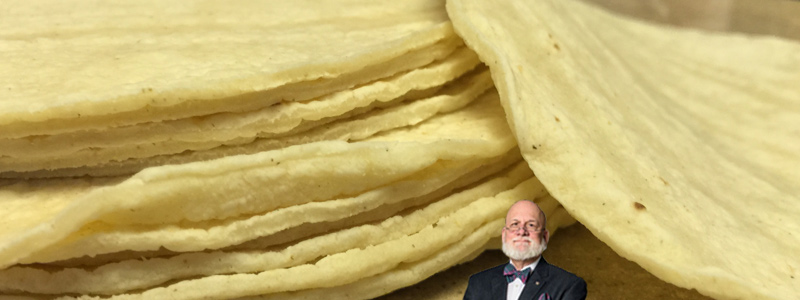Here we go again. The FDA is recommending that “Adding Folic Acid to Corn Masa Flour May Prevent Birth Defects”.
Jonca Bull, M.D., of the FDA notes, “Many Hispanic women don’t benefit from the folic acid in cereal grain products because those products are not a mainstay of their regular diets — which often are corn masa-based.” This could be a reason why Latinas represent the highest percentage of U.S. women giving birth to children with neural tube defects (NTDs).
Let’s assume for a moment that Latinas’ diet is significantly different from other diets and that it contains a lot of processed corn – but little of any other foods that deliver folic acid. Let’s also agree that NTDs are more common in women with low folic acid and that processed corn (and wheat flour as well) is deficient in folic acid. I suggest this is only a problem when the diet is heavy in processed grains because those important nutrients are removed between the field and the plate.
Why are vitamins removed during processing? Removing fats and nutrients increases the useful shelf life of the end product – flour. Adding back the vitamins might work, but it will probably increase cost and decrease shelf life of both the flours and the products made from them.
Folic acid is a synthetic form of folate, found in supplements and also added to processed, or “fortified,” foods. There is a mounting pile of evidence that demonstrates how folic acid is not efficient in improving the folate levels of people – especially women of childbearing age – regardless of their ethnicity or diet. Yet, here’s our FDA suggesting that a solution to an ethnicity concern is to add back a substance that was initially removed, but do it with a synthetic substance that may not deliver the outcome expected.
Instead of doping processed foods (aka fortifying) with look-alike chemicals, why not just leave the darn grain alone in the first place? If you don’t suck out the nutrients you won’t have to add anything back in. That makes sense, but probably not to everyone.
Would food makers be happy with products that would spoil quicker and cost more money to manufacture?
The final set of questions are directed at our government’s FDA, which seems more in tune with manufacturing than in the health of the nation.
First, admit that folic acid and folate are not the same thing. Support the work that shows how adding folic acid isn’t as effective as adding folate. Stop referring to both folic acid and folate as folate, which is as deceptive as referring to both progesterone and synthetic versions of progesterone as progestins. Encourage citizens to use real food instead of the processed and fortified substitutes that line the grocery store shelves. That means being serious about the FDA’s role in supporting FOOD, not just the DRUG part of their title.
The citizens of the United States have a right to demand that their government look out for their safety when it comes to drugs AND food. The current state of the food supply is in shambles and drug use is on a steady rise – both pointing to flat out failures to serve and protect us.
The data is mounting that we’re on the wrong course.
What will it take to reverse this trend and move toward a system that has our collective health at heart – especially when alternative health providers and compounders are pushed aside?

